
Table of Contents
Synopsis
The Arctic Data Center, the primary data and software repository for the Arctic section of the National Science Foundation (NSF) Office of Polar Programs, is committed to supporting the preservation and appropriate reuse of the results of NSF-funded Arctic social scientific research. There are known challenges archiving and preserving social scientific data, and in an effort to engage more fully with the social scientific community, we hosted a workshop focused on supporting Arctic social scientific data co-led with the assistance of social scientists active in Arctic research. The purpose of the proposed workshop was to discuss a central question:
How can the Arctic Data Center best support researchers from diverse social scientific disciplines in preserving and archiving their data in accordance with the requirements and policies of the National Science Foundation?
The desired outcomes of this discussion based workshop were to 1) reinforce partnership and communication with the Arctic social scientific research community; 2) enhance understanding of how the Arctic Data Center can support the needs of the social scientific community while upholding the requirements of the NSF; and 3) outline further steps for collaboration and training between the Arctic Data Center and the social scientific community.
Pre-work for the workshop included reading the following:
- Hampton SE, Jones MB, Wasser LA, Schildhauer MP, Supp SR, Brun J, Hernandez RR, Boettiger C, Collins SL, Gross LJ, Fernández DS, Boettiger C, Collins SL, Gross LJ, Fernandez DS, Budden AE, White EP, Teal TK, Labou SG, Aukema JE. Skills and knowledge for data-intensive environmental research. BioScience. 2017 Jun 1;67(6):546-57.
- Anderson S, Strawhacker C, Presnall A. Arctic Horizons: Final Report. Washington DC: Jefferson Institute. 2018.
- Code of Conduct, adapted from the Arctic Science Summit Week 2020.
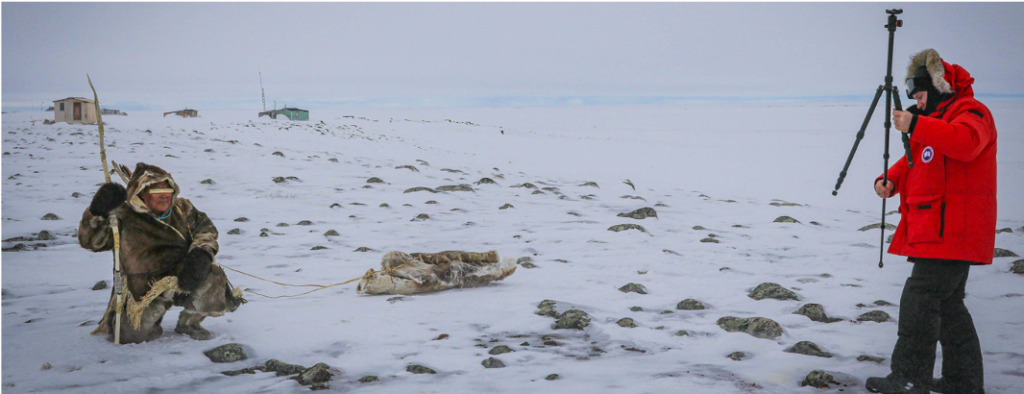
Report
The co-organizers wrote up a report of what we discussed at the brief virtual workshop to preserve it for posterity. That high-level report can be found here.

Meet the Participants
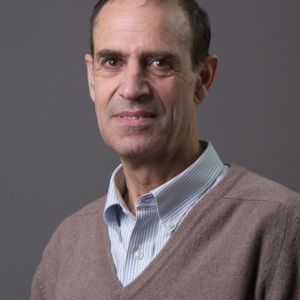
Matthew Berman has been researching social science and public policy issues at the Institute of Social and Economic Research (ISER) at the University of Alaska Anchorage since 1981. His primary areas of interest include economic organization and non-market valuation and his research interests include sustainable communities (institutions and uncertainty, rural mixed economies), natural resources (social-ecological systems, spatial ecosystem services, political economy and institutions), and health and safety (alcohol policy, aviation safety).

Jessica Black holds a bachelor’s degree in social work from the University of Alaska Fairbanks and a master’s degree and doctorate in social work both from Washington University in St. Louis. Black is currently an Assistant Professor in the Department of Alaska Native Studies and Rural Development and Tribal Management at the College of Rural and Community Development, University of Alaska Fairbanks. In this role, Black not only teaches Alaska Native Studies and Tribal Management, but she also engages salmon research with Alaska Native communities. She has focused her efforts on the human aspects of salmon research, particularly the impact that salmon and other natural resources have on individual and community well-being.
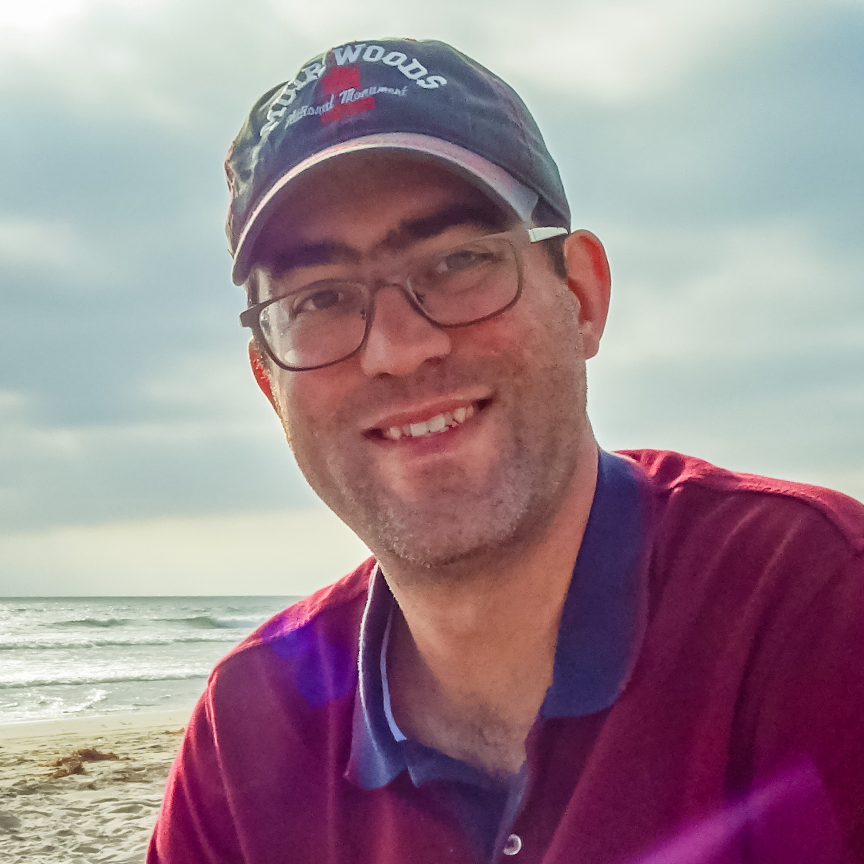
Jonathan Blythe is the Environmental Studies Program data manager for the Bureau of Ocean Energy Management (BOEM), and is responsible for maintaining the Environmental Studies Program Information System. Jonathan is active in the earth science data management community and co-leads the Arctic Data Collaboration Team under IARPC and participates in Earth Science Information Partners Federation. He is a senior advisor on matters of data policy and environmental science data management at BOEM and the Department of the Interior. Prior to Joining BOEM, Jonathan worked as a biological oceanographer at the NOAA National Oceanographic Data Center. He earned a Ph.D. in Biological Oceanography from the MIT/WHOI Joint Program in Applied Ocean Science and Engineering. Prior to that, he earned a Bachelor of Science in Aquatic Biology from UCSB.
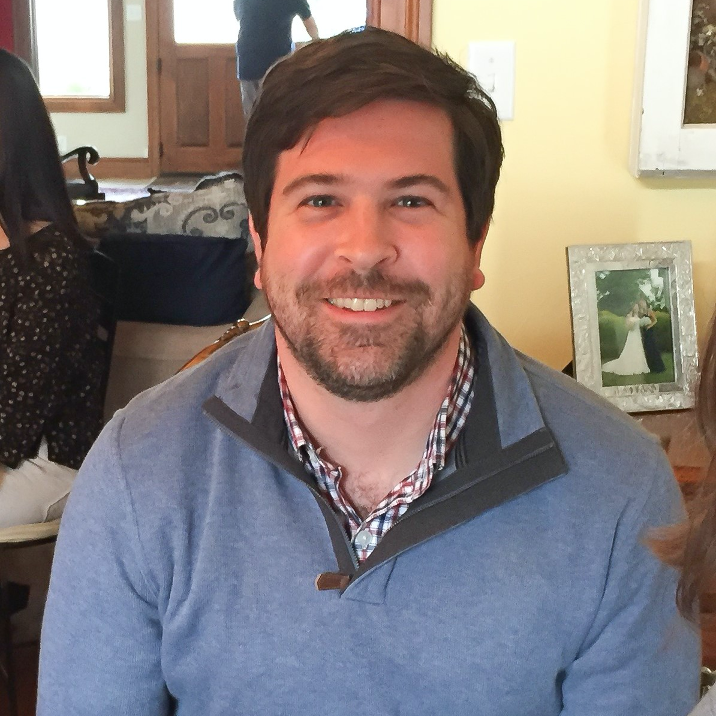
Michael Brady is a cartographer at the National Geospatial-Intelligence Agency’s (NGA) Maritime Safety Office where he provides geospatial expertise with a focus in the Arctic. As an assistant to the NGA Senior GEOINT Authority-Maritime, Mike represents NGA in various international and interagency fora including the International Hydrographic Organization, U.S. Committee on the Marine Transportation System, U.S. Hydrographic Planning Committee, and the Interagency Arctic Research Policy Committee where he co-leads the Arctic Data Collaboration Team. Mike is a veteran of the U.S. Coast Guard and an environmental geographer with a Ph.D. in Geography from Rutgers, The State University of New Jersey. He earned a BA and MA in Geography from Hunter College, The City University of New York.
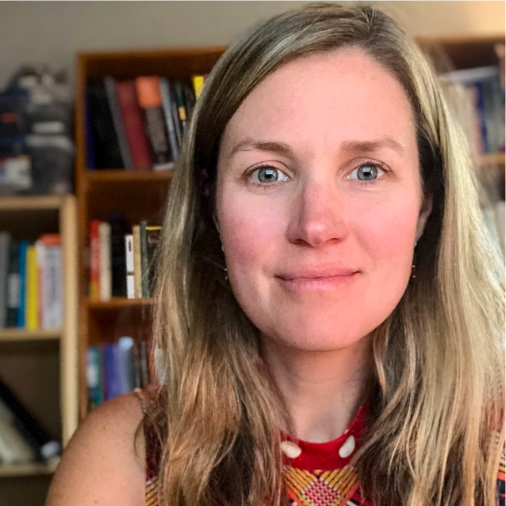
Courtney Carothers is a Professor of Fisheries at the University of Alaska Fairbanks. She holds a Ph.D. & an M.A. in environmental anthropology from the University of Washington and an A.B. in biology & society from Cornell. Her research explores how fishery systems are being remade by enclosure and privatization processes and she partners with Indigenous communities to understand social and cultural dimensions of knowledge and expertise, climate change, subsistence livelihoods, and decolonizing research. Current projects include Atautchikkun Iḷitchisukłuta (Coming Together to Learn) advancing ethical protocols for knowledge co-production of western and Indigenous sciences to understand Arctic change, Indigenizing Salmon Science and Management working towards greater equity in fisheries science & management in Alaska, and the State of Alaska’s Salmon and People.
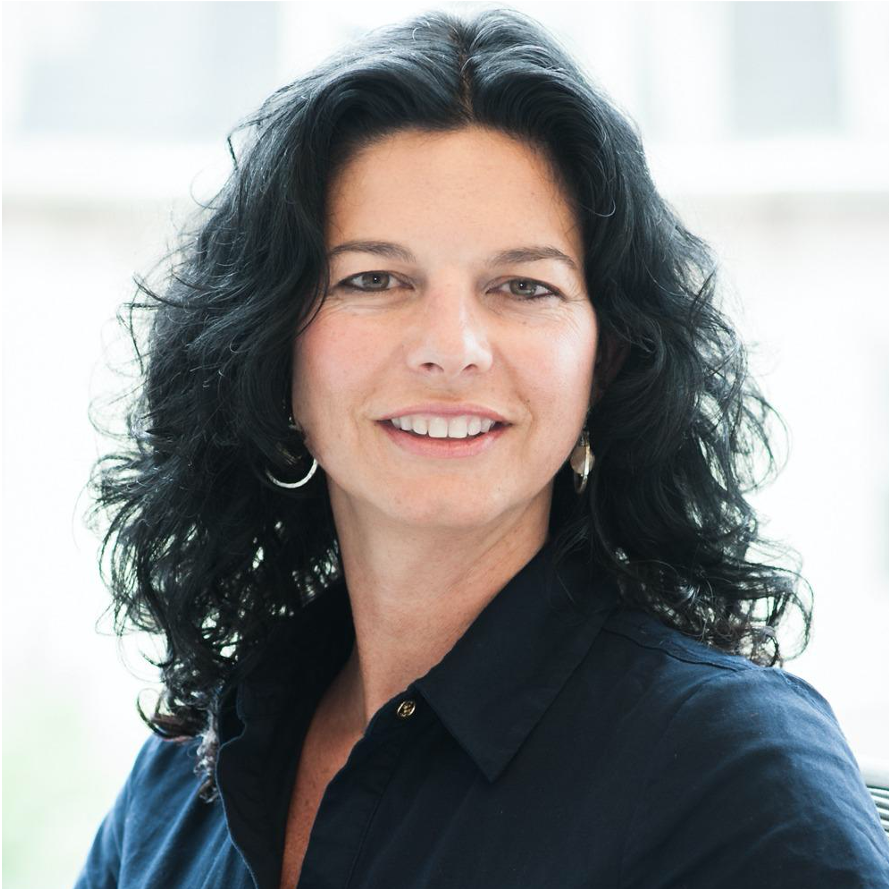
Mèrce Crosas is a data technologist and researcher, currently with two roles as the University Research Data Management Officer, with Harvard University Information Technology (HUIT), and the Chief Data Science and Technology Officer at Harvard’s Institute for Quantitative Social Science. She’s interested in open science to facilitate access and reuse of research data and code while preserving privacy, build software to enhance the quality and productivity of scientific outcomes, improve research data management, and establish data-centric multidisciplinary collaborations with the aid of technology and a human touch.
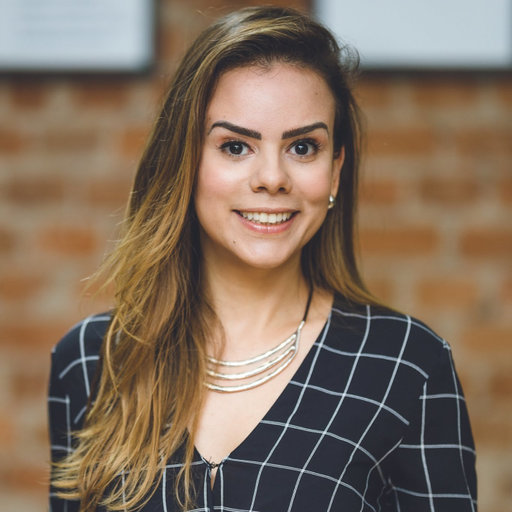
Renata Curty is an open science advocate passionate about the intersection of people, data/information and technology. Her interests are mainly focused on the scholarly communication domain, including sociology of science, scientists’ data sharing and reuse behaviors, research reproducibility and transparency, data management and curation, metadata standards for data documentation, scholarly metrics, data repositories, platforms and innovative approaches for scientific collaboration and publication.

Colin Elman is a Professor of Political Science and Director of the Center for Qualitative and Multi-Method Inquiry in the Maxwell School, Syracuse University. He is a co‐founder of both the International History and Politics and the Qualitative and Multi‐method Research organized sections of the American Political Science Association, and co-director of the annual summer Institute for Qualitative and Multi-Method Research. Elman leads the Qualitative Data Repository, and is series co-editor (with John Gerring, UT-Austin and James Mahoney, Northwestern) of the Cambridge University Press Strategies for Social Inquiry book series, and (with Diana Kapiszewski and James Mahoney) the Methods for Social Inquiry book series. Elman co-chaired (with Arthur Lupia, UMich) the American Political Science Association’s committee on Data Access and Research Transparency (DA-RT).
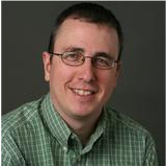
Geoffrey Hayes has research interests that lie in both evolutionary population genetics and genetic epidemiology. The evolutionary population genetic projects include the examination of genetic profiles of prehistoric and contemporary populations from the North American Arctic and Subarctic to better understand human population histories in these regions. His genetic epidemiology projects involve the identification of genetic risk factors underlying common, complex genetic traits and diseases such as diabetes, asthma, and related metabolic, pulmonary, and cardiovascular traits, as well as the development of new methods to conduct such studies. Dr. Hayes’ particular specialty is the design and implementation of genome-wide association studies.

Erica Hill is currently serving as the NSF Program Director for the Office of Polar Programs with the Arctic Social Sciences section. She is on the faculty of the University of Alaska Southeast and is a broadly trained archaeologist with research interests in Peru and the Arctic. She received her B.A. from the University of Florida, and earned an M.A. and Ph.D. in Anthropology at the University of New Mexico. She has excavation experience in Alaska, Florida, the Southwest U.S, Mexico, Peru, and the Russian Far East and has conducted ethnographic fieldwork in Honduras.
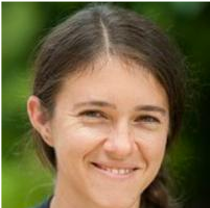
Kristal Jones is a current research affiliate at SESYNC using mixed methodologies to analyze the human-environment interactions present in agricultural production and to identify the impacts of cross-scalar changes and perturbations to the social and ecological foundations of food systems. She currently leads the Qualitative Data Initiative at SESYNC, focused on building awareness and capacity among social scientists to share and re-use qualitative data in ways that are appropriate and sensitive to the original data origins. Some recent research projects include characterizing the relationship between types of agricultural operations in the US and ecological outcomes in the surrounding landscape and evaluating consumer preferences and priorities related to nontraditional irrigation water used on food crops.
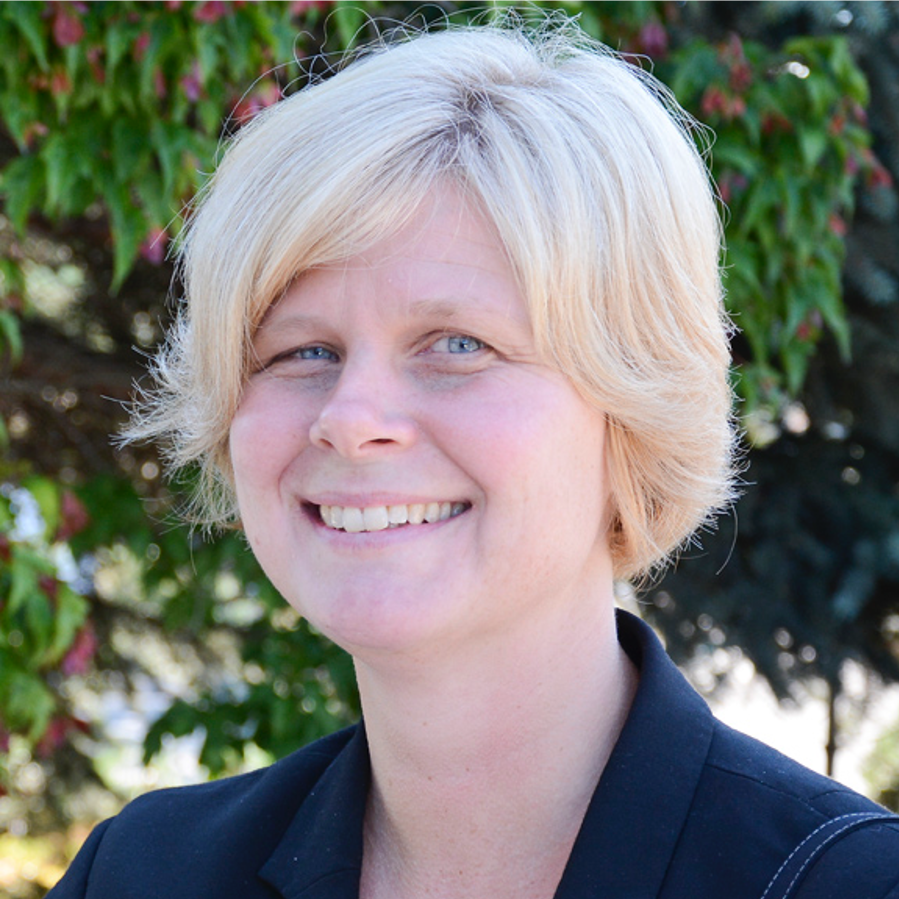
Marie Lowe is an applied anthropologist and a public policy faculty member at UAA’s Institute of Social and Economic Research (ISER). After completing a Ph.D. at Columbia University in 2006, she was hired at ISER to study Alaska community impacts of federal fisheries restructuring. Since that time, she has been conducting research concerning the cultural dimensions of resource management, economic development, and Alaska/Arctic social policy issues. Her work ranges from applied studies such as program evaluations to social impact and policy analyses for both public and private organizations. In the past, she has taught anthropology courses and is currently involved in co-designing a Master of Public Policy program in UAA’s College of Business and Public Policy with an emphasis on Alaska and Arctic policy issues.

Jared Lyle is an Archivist at the Inter-university Consortium for Political and Social Research (ICPSR), where he directs the Metadata and Preservation Unit, which is responsible for Metadata, the Bibliography of Data-Related Literature, and Digital Preservation. He also serves as Director of the Data Documentation Initiative (DDI), an international metadata standard for describing survey and other social science data. The Data Documentation Initiative (DDI) is an international standard for describing the data produced by surveys and other observational methods in the social, behavioral, economic, and health sciences.

Ben Marwick’s main research activities combine models from evolutionary ecology with analyses of archaeological evidence to investigate past human behavior. Specific interests include hominin dispersals into mainland Southeast Asia, forager technologies and ecology in Australia, mainland Southeast Asia and elsewhere. Ben analyses how archaeology engages with local and online communities, and with popular culture. Ben is also interested in techniques and methods for reproducible research and open science. Ben supervises the UW geoarchaeology laboratory.
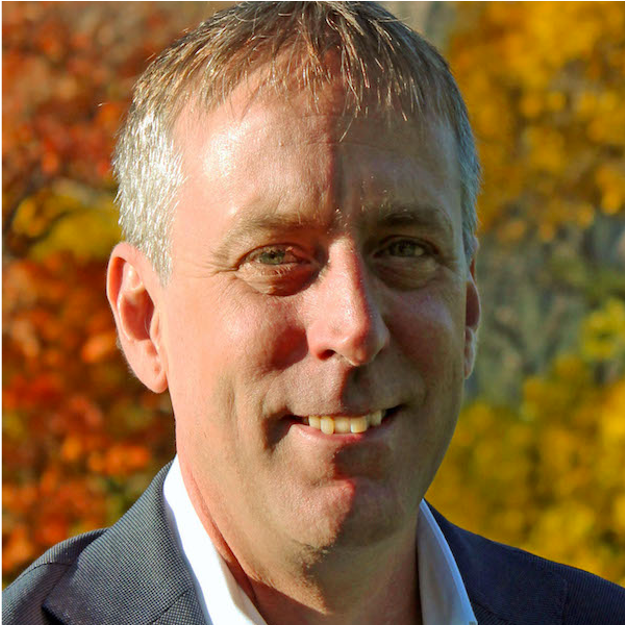
Mark Parsons is a Senior Research Scientist at the Tetherless World Constellation at the Rensselaer Polytechnic Institute. He is a geographer who researches mediation and how people share information across differences in order to enable the success, development, and extension of data sharing networks. He focuses on stewarding research data and making them more accessible and useful across different ways of knowing. He served as the first Secretary General of the Research Data Alliance (RDA) and Associate Director of the Rensselaer Institute for Data Exploration and Applications. He has been leading major data stewardship efforts for more than 20 years, and received the American Geophysical Union Charles S. Falkenberg Award as an advocate of robust data stewardship as a vital component of Earth system science and as an important profession in its own right.
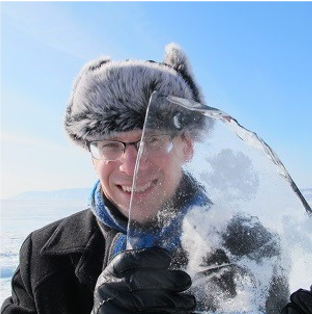
Andrey Petrov is Associate Professor of Geography, ARCTICenter Director and Academic Director of GeoTREE Center at the University of Northern Iowa. Dr. Petrov is an economic and social geographer who specializes in Arctic economy, sustainable development, resilience of Arctic human-environment systems with an emphasis on the social geography of Indigenous and northern populations. His current research is focused on multiple Arctic regions, largely in Russia and Canada, and concerns regional development, spatial organization, and restructuring of peripheral economies, regional and local sustainability and interdisciplinary, community-based research. Dr. Petrov leads the Research Coordination Networks in Arctic Sustainability and Arctic Coastal Resilience. Dr. Petrov has served as a lead co-author of the Arctic Human Development Report and Arctic Social Indicators Reports.

Peter Pulsifer‘s research addresses questions on the use of geographic information with a focus on supporting interoperability. Data and information sharing is critical to integrating and linking many different kinds of knowledge and supporting interdisciplinary research. Semantic interoperability, the ability to effectively share meaning across knowledge systems, is at the core of his research. These research themes are highly relevant to his focus on community-based research and consideration of the links between Western scientific and Indigenous Knowledge. Since 2006, his work has focused on working with and addressing priority issues of Inuit and other Indigenous Peoples of the Arctic, including extensive experience working directly with Indigenous communities in a co-production model for the establishment of community-based expertise, capacity, and information infrastructure.

Marc Stieglitz is with Office of Polar Programs’ (OPP) Arctic Science Section’s Arctic Natural Sciences’ (ANS) team of program officers. Prior to joining NSF, Stieglitz was an associate professor in the School of Civil and Environmental Engineering and School of Earth and Atmospheric Sciences at Georgia Tech. He has been active in Arctic research since the early 1990s. His research interests are at the interface of the fields of hydrology, ecology, and biogeochemistry. He also brings expertise in modeling, remote sensing, and cyberinfrastructure to the position. Stieglitz previously served in a temporary position in ANS from 2015-2018. He also served as program officer in the Arctic System Science program and played a critical role in linking the section and OPP’s Arctic community to the programs in NSF’s Office of Advanced Cyberinfrastructure and EarthCube.
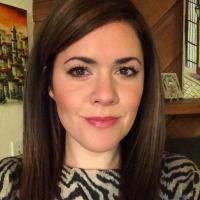
Colleen Strawhacker is the Program Director for the Arctic System Science and the Arctic Social Sciences Programs in the Office of Polar Programs at the National Science Foundation. She is currently on leave as a Research Scientist at the National Snow and Ice Data Center at the University of Colorado Boulder and joined the ELOKA team in 2013. She is trained as an anthropological archaeologist, and her research interests focus on climate-driven challenges to food security in the prehispanic US Southwest and Arctic with particular interest in information and data sovereignty issues for Indigenous communities. She has partnered closely with Indigenous communities in her research.

Andrew Stuhl’s teaching and writing interests sit at the crossroads of environmental history, history of science, and environmental studies. He is drawn to the ways ideas of nature have mediated the human relationship with the environment over time. Most recently, he has explored this theme in the Arctic region, where scientific knowledge about people and the environment has been entangled with the colonization of the far north over the last 150 years. Because both environmental problem-solving and scholarship in the environmental humanities require collaboration, he is committed to interdisciplinarity and community engagement.
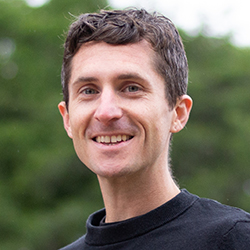
Nic Weber is an Assistant Professor at the Information School at the University of Washington. His research interests are data and software curation, civic technology, and science and technology studies. At the iSchool he has affiliations with the DataLab and the Technology and Social Change (TASCHA) group. Weber is the technical director of the Qualitative Data Repository where he leads a small development team in building open-source tools to facilitate transparent social science research. He has a Ph.D. in Information Science from the University of Illinois.
Meet the Organizers
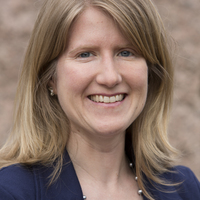
Noor Johnson is a research scientist at the National Snow and Ice Data Center (NSIDC) at the University of Colorado Boulder, where she is part of the Exchange for Local Observations and Knowledge of the Arctic (ELOKA). Trained as a cultural anthropologist, Noor has done research on issues related to climate change, community-based monitoring, and Indigenous governance in northern Canada. She has worked with a number of Indigenous, international, and research organizations on issues related to science policy, including the Inuit Circumpolar Council and the Smithsonian Institution. At ELOKA, Noor’s work focuses on data infrastructures and networks for community-based observing and monitoring. From 2015 to 2016, she was an inaugural Fulbright Arctic Initiative Scholar working on offshore and renewable energy.
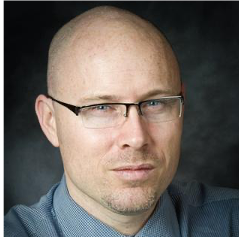
Timothy Pasch is Associate Professor of Communication at the University of North Dakota. He has received research support from the NSF, the US Department of Education Title VI (FLAS), and the Government of Canada. He lived with an Inuit family in Inukjuaq, Nunavik for his dissertation research and has worked in the community of Arviat, in the Kivalliq Region of Nunavut, on various digital research initiatives. His currently funded research focuses on addressing educational and cyberinfrastructural barriers to sustainable and culturally-aligned economic development in the North American Arctic. Pasch’s research focuses on Arctic Digital Communication Networks, Digitally-Enabled Cultural Entrepreneurship, VR-assisted Social Network Analysis, Big Data Analytics, Distance Learning Optimization, and Cultural/Linguistic Resilience through Communicative Technologies.
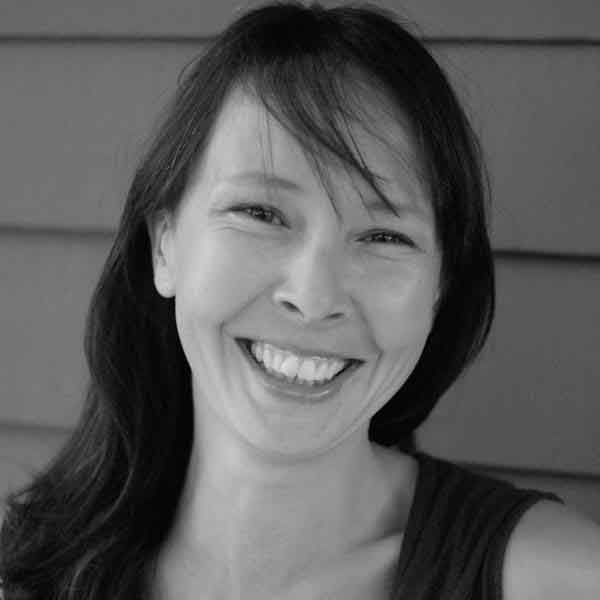
Amber Budden is the Director of Outreach and Learning at NCEAS, leading the data science training initiatives within the Learning Hub. She helps develop training curricula and resources, provides instruction, and coordinates outreach focused on NCEAS data science and infrastructure projects, supporting ecological data preservation and discovery. Trained in psychology and zoology, Amber has experience as a research ecologist before transitioning into community management and data science outreach. Her focus is on enhancing data literacy and supporting users of data infrastructure through community building, training, and user-focused design.
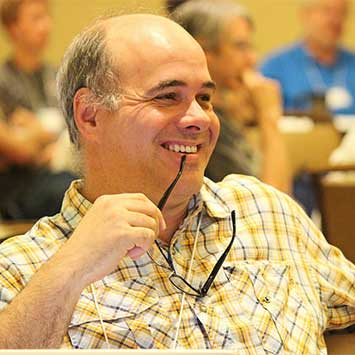
Matt Jones directs the Informatics program at NCEAS, which focuses on both supporting efficient synthesis through scientific computing and on building new advanced infrastructure to support data sharing, preservation, analysis, and modeling. Matt is the Director of the DataONE program, a global network of interoperable data repositories, and of the NSF Arctic Data Center. In addition to data infrastructure work at NCEAS, Matt also helps to build the NCEAS Learning Hub through an emphasis on data science and reproducible research teaching. Matt’s career has focused on improving data science infrastructure to support cross-disciplinary and synthetic science, principally through the development of open source software for data repositories, metadata systems, and reproducible analysis and modeling.

Erin McLean is the Community Engagement and Outreach Coordinator with the Arctic Data Center, headquartered at NCEAS in Santa Barbara. She holds a bachelor of arts from Boston University in marine science and English literature and a master of science from the University of Rhode Island in biological and environmental sciences. A scientist, educator, and writer, she has built her career on making science more accessible to all.
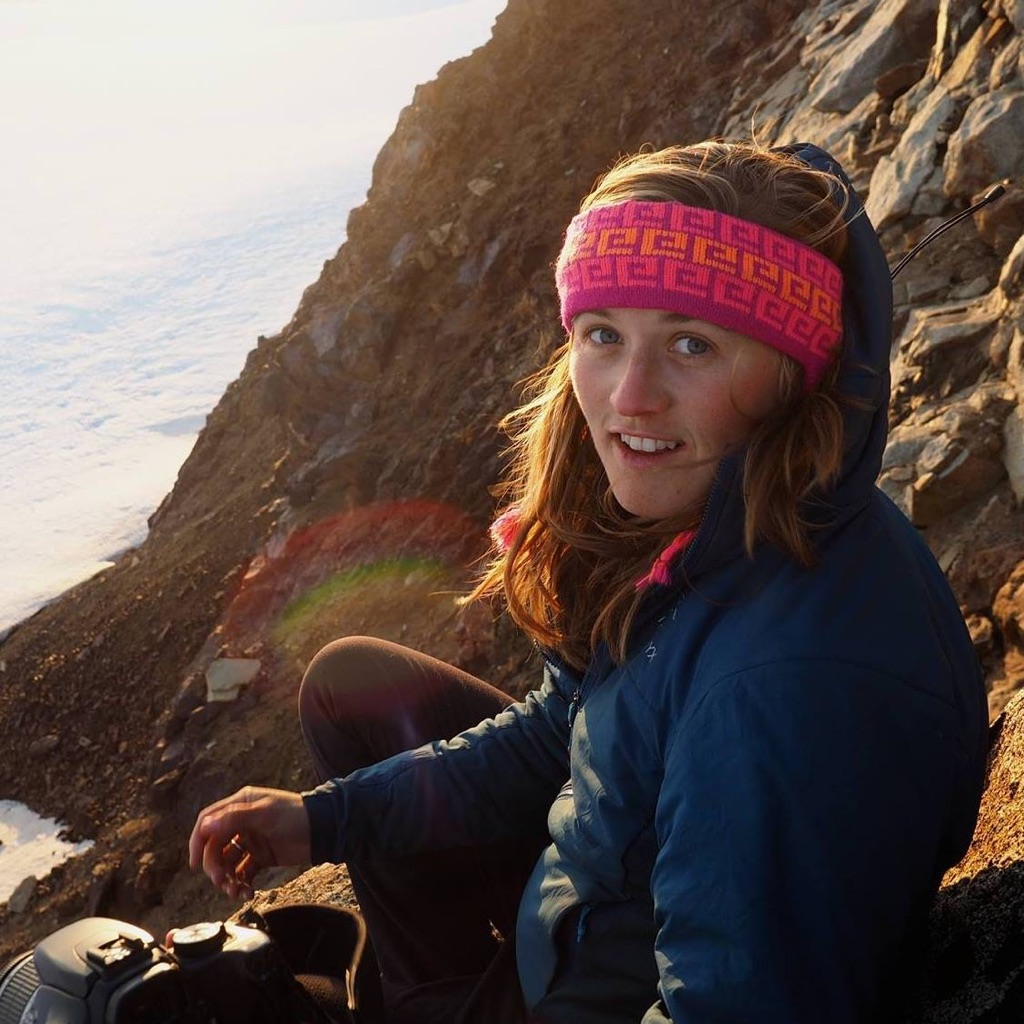
Cézanna Semnacher is the former Community Engagement and Outreach Coordinator for the Arctic Data Centers and holds a B.Sc in Biology and a minor in Sustainability. More than that she holds a heart for exploration, curiosity, asking questions, traditional ecological knowledge, diving into water, working in remote environments, drawing as a way to connect people and landscape, and working unreservedly for the community that surrounds her. Both a student and staff member for the Juneau Icefield Research Program, Cézanna nurtures a polar focused trajectory and endeavors to further her participation in glaciology and social scientific research.
Relevant Works
Matthew Berman
Berman M. Resource rents, universal basic income, and poverty among Alaska’s Indigenous peoples. World Development. 2018 Jun 1;106:161-72.
Berman M, Loeffler R, Schmidt JI. Long-term benefits to Indigenous communities of extractive industry partnerships: Evaluating the Red Dog Mine. Resources Policy. 2020 Jun 1;66:101609.
Berman M, Schmidt JI. Economic effects of climate change in Alaska. Weather, Climate, and Society. 2019 Apr;11(2):245-58.
Jessica Black
Black JC, Wheeler N, Tovar M, Webster-Smith D. Understanding the challenges to providing disabilities services and rehabilitation in rural Alaska: Where do we go from here?. Journal of social work in disability & rehabilitation. 2015 Jul 3;14(3-4):222-32.
Wolf DA, VanZile-Tamsen C, Black JC, Billiot SM, Tovar M. A comparison of self-reported physical health and health conditions of American Indian/Alaskan Natives to other college students. Journal of community health. 2013 Dec 1;38(6):1090-7.
Jonathan Blythe
Auad G, Blythe J, Coffman K, Fath BD. A dynamic management framework for socio-ecological system stewardship: A case study for the United States Bureau of Ocean Energy Management. Journal of environmental management. 2018 Nov 1;225:32-45.
Blythe JN, Dadi U. Knowledge integration as a method to develop capacity for evaluating technical information on biodiversity and ocean currents for integrated coastal management. Environmental science & policy. 2012 May 1;19:49-58.
Obuch RC, Carlino J, Zhang L, Blythe J, Dietrich C, Hawkinson C. Department of the Interior metadata implementation guide—Framework for developing the metadata component for data resource management. US Geological Survey; 2018.
Michael Brady
Brady M, Leichenko R. The impacts of coastal erosion on Alaska’s North Slope communities: A co-production assessment of land use damages and risks. Polar Geography. 2020.
Leichenko R, McDermott M, Bezborodko E, Brady M, Namendorf E. Economic vulnerability to climate change in coastal New Jersey: A stakeholder-based assessment. Journal of Extreme Events. 2014 Aug 16;1(01):1450003.
Schechtman J, Brady M. Cost-efficient climate change adaptation in the North Atlantic. Connecticut: National Oceanic and Atmospheric Administration (NOAA) and Sea Grant and North Atlantic Regional Team. 2013 Jul.
Courtney Carothers
Carothers C. Fisheries privatization, social transitions, and well-being in Kodiak, Alaska. Marine Policy. 2015 Nov 1;61:313-22.
Zanotti L, Carothers C, Apok CA, Huang S, Coleman J, Ambrozek C. Political ecology and decolonial research: co-production with the Iñupiat in Utqiaġvik. Journal of Political Ecology. 2020 Jan 28;27(1):43-66.
Charnley S, Carothers C, Satterfield T, Levine A, Poe MR, Norman K, Donatuto J, Breslow SJ, Mascia MB, Levin PS, Basurto X. Evaluating the best available social science for natural resource management decision-making. Environmental Science & Policy. 2017 Jul 1;73:80-8.
Mercè Crosas
Crosas M. The evolution of data citation: from principles to implementation. IAssist quarterly. 2014 May 26;37(1-4):62.
Goodman A, Pepe A, Blocker AW, Borgman CL, Cranmer K, Crosas M, Di Stefano R, Gil Y, Groth P, Hedstrom M, Hogg DW. Ten simple rules for the care and feeding of scientific data. PLoS computational biology. 2014 Apr;10(4).
Wilkinson MD, Dumontier M, Aalbersberg IJ, Appleton G, Axton M, Baak A, Blomberg N, Boiten JW, da Silva Santos LB, Bourne PE, Bouwman J. The FAIR Guiding Principles for scientific data management and stewardship. Scientific data. 2016;3.
Renata Curty
Curty RG. Factors influencing research data reuse in the social sciences: An exploratory study. 2016.
Curty RG, Crowston K, Specht A, Grant BW, Dalton ED. Attitudes and norms affecting scientists’ data reuse. PloS one. 2017;12(12).
Curty R, Yoon A, Jeng W, Qin J. Untangling data sharing and reuse in social sciences. Proceedings of the Association for Information Science and Technology. 2016;53(1):1-5.
Colin Elman
Elman C, Gerring J, Mahoney J. Case study research: Putting the quant into the qual. Sociological Methods & Research. 2016.
Lupia A, Elman C. Openness in political science: Data access and research transparency: Introduction. PS: Political Science & Politics. 2014 Jan;47(1):19-42.
Elman C, Kapiszewski D, Lupia A. Transparent social inquiry: implications for political science. Annual Review of Political Science. 2018 May 11.
Geoffrey Hayes
Flegontov P, Altınışık NE, Changmai P, Rohland N, Mallick S, Adamski N, Bolnick DA, Broomandkhoshbacht N, Candilio F, Culleton BJ, Flegontova O, Friesen TM, Choongwon Jeong C, Harper TK, Keating D, Kennett DJ, Kim AM, Lamnidis TC, Lawson AM, Olalde I, Oppenheimer J, Potter BA, Raff JA, Sattler RA, Skoglund P, Stewardson K, Vajda EJ, Vasilyev S, Veselovskaya E, Hayes MG, O’Rourke DH, Krause J, Pinhasi R, Reich R, Schiffels S. Palaeo-Eskimo genetic ancestry and the peopling of Chukotka and North America. Nature. 2019 Jun;570(7760):236-40.
Raff JA, Rzhetskaya M, Tackney J, Hayes MG. Mitochondrial diversity of Iñupiat people from the Alaskan North Slope provides evidence for the origins of the Paleo‐and Neo‐Eskimo peoples. American Journal of Physical Anthropology. 2015 Aug;157(4):603-14.
Raghavan M, DeGiorgio M, Albrechtsen A, Moltke I, Skoglund P, Korneliussen TS, Grønnow B, Appelt M, Gulløv HC, Friesen TM, Fitzhugh W, Malmström H, Rasmussen S, Olsen J, Melchior L, Fuller BT, Fahrni SM, Stafford T Jr, Grimes V, Renouf MA, Cybulski J, Lynnerup N, Lahr MM, Britton K, Knecht R, Arneborg J, Metspalu M, Cornejo OE, Malaspinas AS, Wang Y, Rasmussen M, Raghavan V, Hansen TV, Khusnutdinova E, Pierre T, Dneprovsky K, Andreasen C, Lange H, Hayes MG, Coltrain J, Spitsyn VA, Götherström A, Orlando L, Kivisild T, Villems R, Crawford MH, Nielsen FC, Dissing J, Heinemeier J, Meldgaard M, Bustamante C, O’Rourke DH, Jakobsson M, Gilbert MT, Nielsen R, Willerslev E. The genetic prehistory of the New World Arctic. Science. 2014 Aug 29;345(6200):1255832.
Erica Hill
Hill E. Animals as agents: hunting ritual and relational ontologies in prehistoric Alaska and Chukotka. Cambridge Archaeological Journal. 2011 Oct;21(3):407-26.
Hill E. The historical ecology of walrus exploitation in the North Pacific. Human impacts on seals, sea lions, and sea otters: integrating archaeology and ecology in the Northeast Pacific. University of California Press, Berkeley, CA. 2011 Mar 23:41-64.
Krupnik I, Pratt KL, Hill E. The nonempirical past: enculturated landscapes and other-than-human persons in Southwest Alaska. Arctic anthropology. 2012 Jan 1;49(2):41-57.
Kristal Jones
Alexander SM, Jones K, Bennett NJ, Budden A, Cox M, Crosas M, Game ET, Geary J, Hardy RD, Johnson JT, Karcher S. Qualitative data sharing and synthesis for sustainability science. Nature Sustainability. 2019 Nov 25:1-8.
Filbee‐Dexter K, Symons CC, Jones K, Haig HA, Pittman J, Alexander SM, Burke MJ. Quantifying ecological and social drivers of ecological surprise. Journal of applied ecology. 2018 Sep;55(5):2135-46.
Jones K, Alexander SM, Bennett N, Bishop L, Budden A, Cox M, Crosas M, Game E, Geary J, Hahn C, Hardy D. Qualitative data sharing and re-use for socio-environmental systems research: A synthesis of opportunities, challenges, resources and approaches. 2018.
Marie Lowe
Lowe ME. Gendering human capital development in Western Alaska. Forthcoming. Economic Anthropology.
Lowe ME. Contemporary rural-urban migration in Alaska. Alaska Journal of Anthropology. 2010;8(2):71-88.
Lowe ME. Localized practices and globalized futures: challenges for Alaska coastal community youth. Maritime Studies. 2015 Dec 1;14(1):6.
Jared Lyle
Levenstein MC, Lyle JA. Data: Sharing is caring. Advances in Methods and Practices in Psychological Science. 2018 Mar;1(1):95-103.
Gutmann MP, Abrahamson M, Adams MO, Altman M, Arms C, Bollen K, Carlson M, Crabtree J, Donakowski D, King G, Lyle J. From preserving the past to preserving the future: The Data-PASS project and the challenges of preserving digital social science data. Library Trends. 2009;57(3):315-37.
Pienta AM, Alter GC, Lyle JA. The enduring value of social science research: the use and reuse of primary research data. 2010.
Ben Marwick
Marwick B. Computational reproducibility in archaeological research: Basic principles and a case study of their implementation. Journal of Archaeological Method and Theory. 2017 Jun 1;24(2):424-50.
Marwick B, Boettiger C, Mullen L. Packaging data analytical work reproducibly using R (and friends). The American Statistician. 2018 Jan 2;72(1):80-8.
Marwick B, d’Alpoim Guedes J, Barton CM, Bates LA, Baxter M, Bevan A, Bollwerk EA, Bocinsky RK, Brughmans T, Carter AK, Conrad C. Open science in archaeology. SAA Archaeological Record. 2017;17(4):8-14.
Mark Parsons
Baker KS, Duerr RE, Parsons MA. Scientific knowledge mobilization: Co-evolution of data products and designated communities. International Journal of Digital Curation 2016;10(2):110-135.
Parsons MA, Fox PA. Is data publication the right metaphor?. Data science journal. 2013;12:WDS32-46.
Research Data Alliance International Indigenous Data Sovereignty Interest Group. CARE Principles for Indigenous Data Governance. The Global Indigenous Data Alliance. 2019 Sep.
Andrey Petrov
Petrov AN. Exploring the Arctic’s “other economies”: knowledge, creativity and the new frontier. The Polar Journal. 2016 Jan 2;6(1):51-68.
Petrov AN, BurnSilver S, Chapin III FS, Fondahl G, Graybill J, Keil K, Nilsson AE, Riedlsperger R, Schweitzer P. Arctic sustainability research: toward a new agenda. Polar Geography. 2016 Jul 2;39(3):165-78.
Petrov AN, Tysiachniouk MS. Benefit Sharing in the Arctic: A Systematic View. Resources. 2019 Sep;8(3):155.
Peter Pulsifer
Pulsifer P, Gearheard S, Huntington HP, Parsons MA, McNeave C, McCann HS. The role of data management in engaging communities in Arctic research: overview of the Exchange for Local Observations and Knowledge of the Arctic (ELOKA). Polar Geography. 2012 Sep 1;35(3-4):271-90.
Pulsifer PL, Huntington HP, Pecl GT. Introduction: local and traditional knowledge and data management in the Arctic. 2014.
Pulsifer PL, Kontar Y, Berkman PA, Taylor DF. Information Ecology to Map the Arctic Information Ecosystem. In Governing Arctic Seas: Regional Lessons from the Bering Strait and Barents Sea 2020 (pp. 269-291). Springer, Cham.
Colleen Strawhacker
Anderson S, Strawhacker C, Presnall A. Arctic Horizons: Final Report. Washington DC: Jefferson Institute. 2018.
Jäger MB, Ferguson D, Huntington O, Johnson M, Johnson N, Juan A, Larson S, Pulsifer P, Reader T, Strawhacker C, Walker A. Building an Indigenous foods knowledge network through relational accountability. Journal of Agriculture, Food Systems, and Community Development. 2019 Dec 9;9(B):1-7.
Johnson N, Danielsen F, Fidel M, Pulsifer P, Iversen L, Eicken H, Lee O, Hauser D, Poulsen MK, Strawhacker C, Bell T. Community-based monitoring infrastructures for pan-Arctic observing: Policy-regulatory, technological, social, and economic dimensions. 2018.
Andrew Stuhl
Chu PY, Stuhl A. Reorienting world environmental history: Pedagogy and scholarship on cold places. Environment and History. 2017 Nov 1;23(4):601-16.
Stuhl A. Science and Indigenous Knowledge in Land Claims Settlements: Negotiating the Inuvialuit Final Agreement, 1977-1978. In: Cold Science: Environmental Knowledge in the North American Arctic during the Cold War. 2019.
Stuhl A. The politics of the “New North”: putting history and geography at stake in Arctic futures. The Polar Journal. 2013 Jun 1;3(1):94-119.
Nic Weber
Palmer CL, Weber NM, Cragin MH. The analytic potential of scientific data: Understanding re‐use value. Proceedings of the American Society for Information Science and Technology. 2011;48(1):1-0.
Palmer CL, Weber NM, Renear AH, Muñoz T. Foundations of data curation: the pedagogy and practice of “purposeful work” with research data. 2013.
Weber NM, Palmer CL, Chao TC. Current trends and future directions in data curation research and education. Journal of Web Librarianship. 2012 Oct 1;6(4):305-20.
Noor Johnson
Johnson N, Alessa L, Behe C, Danielsen F, Gearheard S, Gofman-Wallingford V, Kliskey A, Krümmel EM, Lynch A, Mustonen T, Pulsifer P. The contributions of community-based monitoring and traditional knowledge to Arctic observing networks: Reflections on the state of the field. Arctic. 2015 Jan 1:28-40.
Johnson N, Behe C, Danielsen F, Krümmel EM, Nickels S, Pulsifer PL. Community-based monitoring and indigenous knowledge in a changing arctic: a review for the sustaining arctic observing networks. Sustain Arctic Observing Network Task. 2016 Mar;9.
Veland S, Lynch A, Bischoff‐Mattson ZA, Joachim L, Johnson N. All strings attached: Negotiating relationships of geographic information science. Geographical Research. 2014 Aug;52(3):296-308.
Timothy Pasch
Pasch, TJ and Kuhlke, O (2019). Arctic Unmanned Aerial Video (UAV) 4K footage demonstrating topographical factors in Huslia, Alaska. NSF Arctic Data Center. doi:10.18739/A2W37KW0M
Pasch TJ. Starting fire with gunpowder revisited: Inuktitut New Media content creation in the Canadian Arctic. Études/Inuit/Studies. 2010;34(2):61-80.
Pasch TJ. Towards the enhancement of Arctic digital industries: ‘Translating’ cultural content to new media platforms. Invited article for January 2015 special edition Translation and the Contemporary Survival of Languages and Culture.
Amber Budden
Gries C, Budden A, Laney C, O’Brien M, Servilla M, Sheldon W, Vanderbilt K, Vieglais D. Facilitating and improving environmental research data repository interoperability. Data Science Journal. 2018 Sep 20;17.
Hampton SE, Jones MB, Wasser LA, Schildhauer MP, Supp SR, Brun J, Hernandez RR, Boettiger C, Collins SL, Gross LJ, Fernández DS, Boettiger C, Collins SL, Gross LJ, Fernandez DS, Budden AE, White EP, Teal TK, Labou SG, Aukema JE. Skills and knowledge for data-intensive environmental research. BioScience. 2017 Jun 1;67(6):546-57.
Lowe AJ, Smyth AK, Atkins K, Avery R, Belbin L, Brown N, Budden AE, Gioia P, Guru S, Hardie M, Hirsch T. Publish openly but responsibly. Science (New York, NY). 2017 Jul 14;357(6347):141.
Matt Jones
Chard K, Gaffney N, Jones MB, Kowalik K, Ludäscher B, Nabrzyski J, Stodden V, Taylor I, Turk MJ, Willis C. Implementing computational reproducibility in the Whole Tale environment. InProceedings of the 2nd International Workshop on Practical Reproducible Evaluation of Computer Systems 2019 Jun 17 (pp. 17-22).
Parsons MA, Duerr RE, Jones MB. The History and Future of Data Citation in Practice. Data Science Journal. 2019 Nov 1;18(1).
Reichman OJ, Jones MB, Schildhauer MP. Challenges and opportunities of open data in ecology. Science. 2011 Feb 11;331(6018):703-5.
